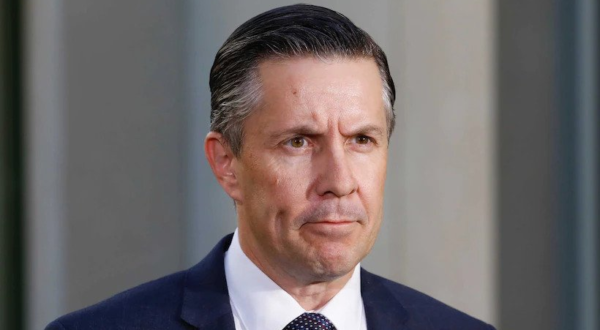
Why is Australia’s Health Minister misinformed about vaping?
Posted on April 25, 2023 By Colin
WHO IS ADVISING AUSTRALIA'S HEALTH MINISTER Mark Butler on vaping? The Minister has been seriously misinformed about the benefits and risks of vaping, and its huge public health potential. His views are out-of-step with Health Ministers in New Zealand, the UK and Canada which have evidence-based policies on vaping.
His advisers appear to be a small group of ideologically-driven tobacco control academics and health bureaucrats with extreme anti-vaping views.

Has he sought advice from experts outside this echo chamber who understand tobacco harm reduction and have opposing view?
Vaping is the most effective quitting aid available and is diverting young people from smoking. However, Mark Butler describes it as "a public health menace"
Mr Butler says vaping is “dangerous in and of itself” and believes the flawed gateway theory based on a report by Professor Emily Banks, that has subsequently been debunked, here and here and previously here.
He grossly underestimates the effectiveness of vaping, “it helps in a very, very small number of cases, probably less than 5% of smokers will quit because of the use of vaping.”
Mr Butler is obsessed with the incorrect notion that vaping is a tobacco industry ploy. “These products are pushed so hard by the tobacco industry because they want to create a pathway back to cigarettes.”
His approach to regulating vaping increasing harsh restrictions amounting to de facto prohibition. However this approach has not worked. We know from past experience that harsh restrictions are rarely, if ever, successful in reducing illegal drug supply for a product that people want. Criminal networks always find a way, supplying unregulated, more dangerous products freely to children.
Or as one former 30-year smoker who quit with vaping eloquently put it on Twitter:

New Zealand
In its most recent Position Statement, the New Zealand Ministry of Health states that “vaping can contribute to Smokefree 25”
“Evidence is growing that vaping can help people to quit smoking and could disrupt inequities”.
It has a realistic view of the risks of vaping. Vaping products “carry much less risk than smoking cigarettes but are not risk free.”
New Zealand authorities deny that vaping is “undermining the long-term decline in smoking among adults and youth”. It clearly states that the gateway to smoking is tiny, if it exists. “Vaping products are attracting very few people who have never smoked into regular vaping, including young people.”
United Kingdom
In a recent speech, the UK Health minister Neil O’Brien gave strong support for vaping, saying “Vaping can play an important role in helping the government achieve its smokefree 2030 ambition”, acknowledging that vapes “are significantly more effective as a quit tool than nicotine gum or patches” and “substantially less harmful than smoking”.
So confident is he that vaping is a huge public health opportunity that he is providing a million free vape starter kits to smokers across England
Mr O’Brien is aware that young people should not vape, and is introducing plans to reduce their uptake.
Canada
HealthCanada is a strong supporter of vaping and recommends it for smokers when other methods to quit have failed. It notes that “vaping nicotine may help a greater proportion of people quit smoking than nicotine replacement therapy (NRT) or counselling alone” and that “switching completely to vaping nicotine is less harmful than continuing to smoke.”
HealthCanada plans to address youth vaping by raising awareness, policing illegal sales and monitoring retailers, manufacturers and importers.
Time to reflect
In all other western countries, nicotine vapes are available as an adult consumer product from general retail, age-restricted outlets, and smoking rates are declining faster than ever. In Australia, requiring a prescription for nicotine effectively denies smokers legal access to a much lower risk product, and smoking rates have flatlined.
Mr Butler would do well to reflect on why Health Departments in other western countries see vaping as a complementary and critical element of tobacco control, which will help achieve smokefree targets.
Has he wondered why their views are diametrically opposed to the advice he is being given? Is he getting a balance of views from experts in the field?
Good public health policy should be evidence-based, requires careful assessment of both sides of a debate and consideration of unintended consequences. Mr Butler's policy meets none of these criteria.
Sources
Mark Butler
Interview, 23 March 2023 | Interview 20 February 2023
New Zealand
Position Statement on Vaping. New Zealand Ministry of Health, March 2023
United Kingdom
Canada
Vaping and quitting smoking. HealthCanada. February 2023
2023–24 Departmental Plan: Health Canada. March 2023